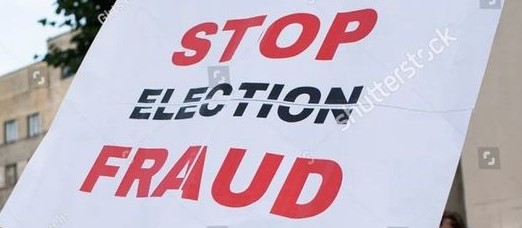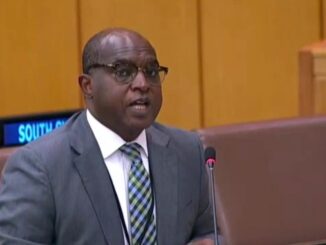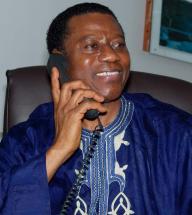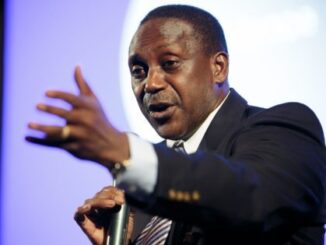
It’s interesting times in the Republic.
Elections have just ended and the incumbent won. Allegations of problems with the tally process from official observers leading to figures rejected by the opposition.
I have seen some bodies in country backing the process but I am yet to hear how many observers they had countrywide.
The people I had close to various international observers say that the numbers were closer than announced but its likely the incumbent would have won in the event of a runoff.
This does not take into account those who did not vote, a figure officially put as 17% and unofficially between 23% and 27%.
Quite a significant chunk who could have swung the elections decisively one way or the other if they had decided to take part in any hypothetical run off.
The opposition says they won’t take part in any governance system brought about by what they claim are flawed results.
Therefore they will not take up any of the seats in parliament or local government.
I am not sure but I think the law states that in the event an mp does not attend sessions for 6 months his seat will be declared vacant.
This means that after 6 months parliament will ask the opposition to send in new names (under the pr system) who will then also not attend parliament. By the time the names on the submitted lists are exhausted it might be mid term or even later of parliament.
I am unsure what the rules are regarding local governance.
What does this mean for the republic?
Well for one it definitely means we will have a de facto one party state. In the 21st century this is quite astonishing.
The incumbent will be free to pass whatever laws they see fit. They could create such laws that the opposition could find subsequent elections beyond their ability to contest. The opposition on the other hand state that the results are so skewed that their presence changes nothing and will only serve to legitimize any such laws passed.
After almost two weeks we are yet to see any of our “development partners” congratulate the incumbent on their win. China and Russia have apparently done so.
There has been a lot of bluster and bravado from figures within the ruling party. They have included allegations that the west have an agenda for regime change because this government has been tough on laws around mineral extraction.
There have been statements that we do not need their blessing to tell us we had a successful election and its a form.of neo colonialism.
This is from the same people who held up loans from imf in the run in to elections as the west endorsing their governance.
The problem for the ordinary man though is what is the end game of the political jostling going on now. Our major concern is ensuring we can earn enough money to put food on the table and that there is stability and security in country.
Will the stand off between the government and its development partners affect the economy?
Africa also has an unfortunate history from Nkrumah to Magafuli recently who all did not do too well after defying Western powers.
These are unprecedented times for the Republic and we are all following the process quite closely.
©️Barton Cole
*Preventing Military Coups in Africa*
Preventing military coups in Africa requires addressing the underlying factors that contribute to such instability. Here are some key measures that can help prevent military coups:
1. Strengthen democratic institutions: Developing strong and accountable democratic institutions is crucial for preventing military coups. This involves ensuring the independence of the judiciary, promoting a free and fair electoral process, and establishing robust checks and balances between the executive, legislative, and judicial branches of government.
2. Good governance and anti-corruption measures: Addressing corruption and promoting good governance are vital in preventing military coups. Governments should implement effective anti-corruption mechanisms, ensure transparency in public administration, and enforce accountability for those who engage in corrupt practices. This helps build public trust and confidence in democratic processes.
3. Military reform and civilian oversight: Establishing civilian oversight mechanisms over the military is essential. This includes ensuring that military institutions are subject to civilian control and oversight, promoting professionalism within the armed forces, and implementing clear protocols for the military’s involvement in politics. Regular training and education on democratic values can help instill a culture of respect for civilian authority within the military.
4. Socioeconomic development and poverty alleviation: Addressing socioeconomic disparities and promoting inclusive development can reduce the grievances that often fuel military interventions. Governments should prioritize poverty alleviation, job creation, and equitable distribution of resources to reduce social tensions and provide citizens with a stake in the democratic system.
5. Respect for human rights and rule of law: Upholding human rights and the rule of law is crucial for preventing military coups. Governments should ensure the protection of civil liberties, freedom of expression, and the right to peaceful assembly. Promoting respect for human rights and ensuring accountability for human rights abuses can help build trust in the democratic system.
6. Regional and international cooperation: Cooperation between African countries, regional organizations (such as the African Union), and international partners is essential for preventing military coups. These entities can provide support in promoting democratic governance, mediating political disputes, and assisting in capacity-building efforts for democratic institutions.
It is important to recognise that preventing military coups requires a comprehensive and long-term approach. By addressing the root causes of instability and promoting democratic values, African nations can create an environment that discourages military interventions and paves the way for sustainable democratic governance.
CULLED FROM WHATSAPP



